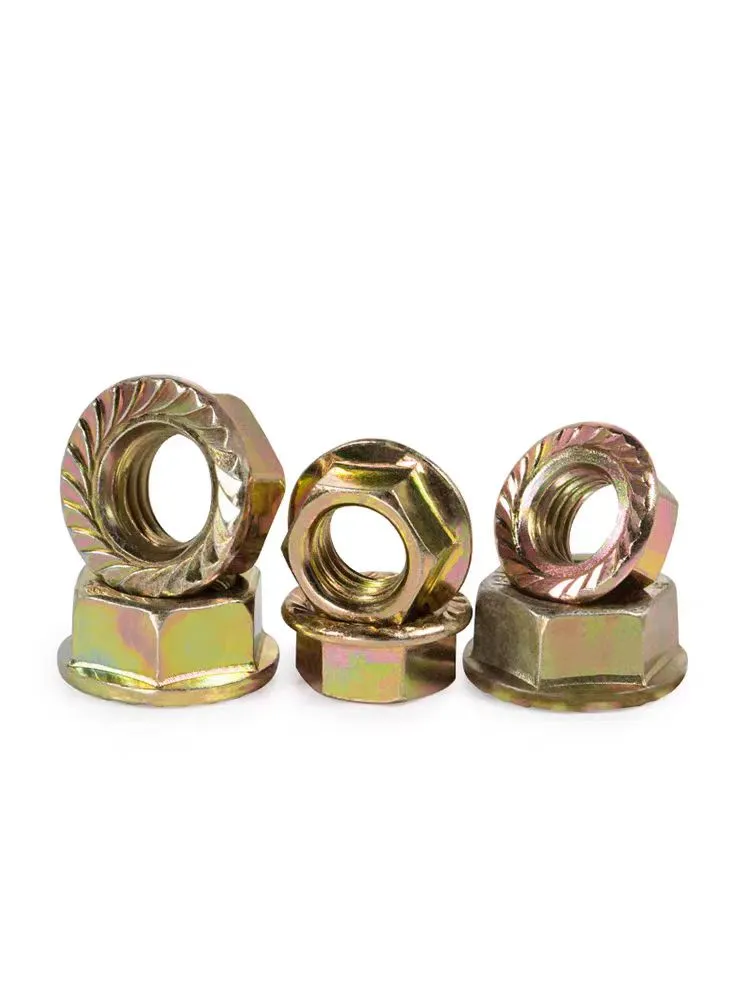

How to Effectively Use Self-Tapping Screws for Metal Applications
নভে. . 09, 2024 21:20 Back to list
How to Effectively Use Self-Tapping Screws for Metal Applications
Understanding Self-Tapping Screws in Metal Applications
Self-tapping screws are essential components in construction and manufacturing, especially when working with metal materials. These screws are designed to create their own holes as they are driven into the substrate, making them ideal for applications where drilling a pilot hole would be time-consuming or impractical. This article explores the functionality, types, advantages, and best practices of self-tapping screws used in metal.
What is a Self-Tapping Screw?
A self-tapping screw is a fastener that can tap its own thread while being inserted into a workpiece. This is achieved by the screw’s specially designed tip, which allows it to penetrate the material without requiring a pre-drilled hole. The screw cuts into the metal, forming its own thread pattern, which secures the screw tightly in place. This feature makes self-tapping screws highly efficient for various metalworking applications.
Types of Self-Tapping Screws
Self-tapping screws can be categorized based on their design and the type of material they are intended to fasten
1. Thread-Cutting Screws These screws have sharp threads that cut into the material. They are typically used for metal-to-metal applications and are effective for thicker metals where low-speed cutting is required. 2. Thread-Forming Screws These screws create threads in the host material without removing any material. They are ideal for thinner sheets of metal and plastic, providing a strong hold without the risk of material failure.
3. Self-Drilling Screws Often referred to as Tek screws, these come with a drill point that allows them to drill their own hole while tapping threads. They are particularly useful in situations where quick installation is crucial, such as in roofing and metal framing.
Advantages of Using Self-Tapping Screws
1. Time-Efficiency The primary advantage of self-tapping screws is the time saved during installation. Since they don’t require a pilot hole, they speed up the process of fastening materials together.
2. Ease of Use They can be driven into metal using standard power tools, allowing for straightforward installation processes even in challenging environments.
self tapping screw into metal

4. Versatility Available in various sizes, materials, and coatings, self-tapping screws can be used on different metals such as aluminum, steel, and even in some applications with plastics.
Best Practices for Using Self-Tapping Screws in Metal
To achieve optimal results when using self-tapping screws in metal applications, consider the following tips
1. Choose the Right Screw Selecting the appropriate type of self-tapping screw is crucial. Ensure that the screw is suitable for the specific type of metal you are working with, considering factors like thickness and application environment.
2. Pre-Drill When Necessary While it’s not always essential, pre-drilling a pilot hole can sometimes improve the integrity of the installation, particularly for harder metals or when working with thinner sheets to avoid metal deformation.
3. Use Proper Tools A power drill with the right speed settings can enhance performance. Too high a speed can cause overheating, while too low a speed may not allow for effective penetration.
4. Avoid Over-torquing Applying too much torque can strip the threads or damage the material. It’s important to tighten screws to the necessary level without exceeding it.
5. Consider Coatings Corrosion resistance is a key factor when dealing with metal. Opt for screws with adequate coatings (like zinc or black oxide) to enhance durability and longevity.
Conclusion
In conclusion, self-tapping screws offer a unique solution for fastening metal materials efficiently and securely. When properly selected and installed, these screws can significantly reduce installation time while providing a strong hold. By following best practices, users can maximize the potential of self-tapping screws, making them an indispensable tool in the realms of construction and manufacturing. Whether you are a DIY enthusiast or a professional tradesperson, understanding self-tapping screws is essential for successful metalworking projects.
Latest news
-
Premium Fasteners Manufacturer | AI-Driven Solutions
NewsAug.01,2025
-
Hot Dip Galvanized Bolts - Hebei Longze | High Strength, Corrosion Resistance
NewsAug.01,2025
-
High-Strength Hot Dip Galvanized Bolts - LongZe | Corrosion Resistance, Custom Sizes
NewsAug.01,2025
-
Best Self Tapping Screws for Drywall - Fast & Secure Installation
NewsJul.31,2025
-
High-Strength Hot Dip Galvanized Bolts-Hebei Longze|Corrosion Resistance&Customization
NewsJul.31,2025
-
Hot Dip Galvanized Bolts-Hebei Longze Metal Products|Corrosion Resistance&High Strength
NewsJul.31,2025

